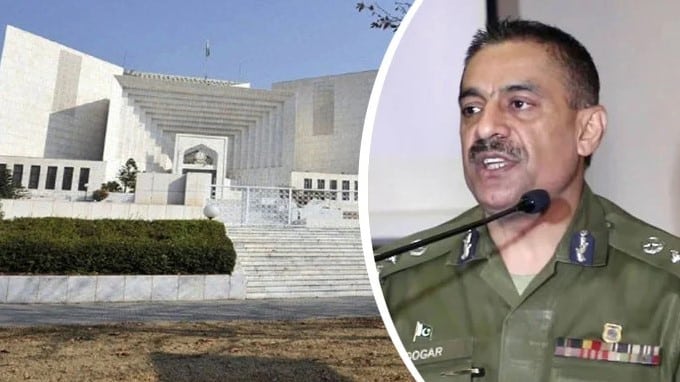The Supreme Court halted Ghulam Mahmood Dogar’s transfer as the Lahore Capital City Police Officer (CCPO) and sent the case to a different high court bench.
A three-judge panel of the Supreme Court, led by Justice Ijaz ul Ahsan, heard Dogar’s appeal of the Federal Service Tribunal (FST) decision from December 2022.
Justice Ahsan heard the case on Thursday and ordered the chief election commissioner, Sikandar Sultan Raja, to provide all records about Dogar’s transfer. Following the court’s reconfiguration, Justice Munib Akhtar was added to the bench.
Dogar, believed to be on good terms with the former chief minister Parvez Elahi, was replaced as city police chief on January 23 by Bilal Siddique Kamyana by the caretaker administration.
During today’s hearing, Justice Ahsan questioned the chief election commissioner’s whereabouts.
The Secretary of the Election Commission, Umar Hameed, responded that CEC Raja is ill and unable to appear in court.
The secretary asserts that the Punjab government verbally requested Dogar’s transfer on January 23. However, the written request was received on January 24 and approved on February 6.
At this point, Justice Akhtar questioned whether verbal requests for orders were typically granted. But, justice Ahsan added, an oral request was granted, and orders were issued in the interim.
However, he noted that the transfer letter was sent after the implementation.
Justice Akhtar asked, “Do federal institutions adhere to verbal orders, and can constitutional bodies issue verbal orders?”
Justice Akhtar remarked that the members of the Election Commission must be consulted before the CEC makes decisions regarding transfers and postings.
Justice Akhtar questioned if the Election Commission had delegated its authority to the chief election commissioner.
The director general (DG) of the law responded that no authority-granting document was available.
Justice Akhtar inquired, “Who approached the CEC about the transfer and postings, and by what law is the CEC permitted to issue the orders himself?”
Elections are scheduled to occur in 90 days, and the 90-day window is shrinking with each passing day.
Justice Ijaz ul Ahsan noted that in Punjab, everyone from a secretary to a peon was reshuffled due to a verbal order issued by the commission on January 26.
Justice Akhtar inquired about the ECP’s actual activities.
Additionally, the judge became enraged by the ECP secretary’s constant interruptions and warned him.
Hameed replied, “I am aware of the fundamental law.
Justice Ahsan responded by saying that you cannot be called a lawyer if you only know the fundamentals of the law.
Justice Akhtar questioned why verbal orders had to be given so quickly.
Justice Ahsan stated that the ECP’s sole responsibility is to conduct elections.
The court also rejected a petition arguing that the elections should have been held within 90 days.
President of the Islamabad High Court Bar Association, Shoaib Shaheen, argued before the court, “We have petitioned the Supreme Court for election dates, and our petition should be heard.”
“The election has been communicated to the chief justice. Therefore, your petition is not before us, judge Aktar stated.
According to Justice Ahsan, the CJP can appoint a bench and set a hearing date.






